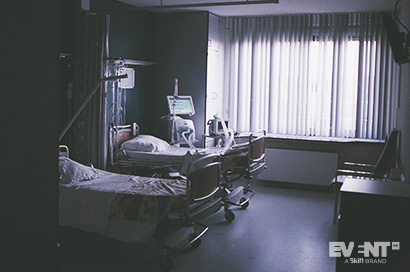Skift Take
Amid widespread coronavirus-related event cancellations, empty venues and hotels are stepping up to support health care efforts. Here's how the industry is pitching in.
The events and hospitality industries are reeling from the worldwide novel coronavirus outbreak and the resulting travel bans and restrictions that have led to sweeping event cancellations. STR reports that hotel occupancy dropped 24.4.% last week compared to the same week in 2019.
In other words, there are currently many event venues and hotels sitting empty as countries impose increasingly strict limits on their populations’ movements and gatherings. But although these venues are experiencing a sharp decline in bookings, they’re serving a different purpose in the fight against COVID-19.
From Venues to Hospitals
Since the earlier days of the outbreak, several countries have been taking advantage of empty hotels and using them to quarantine incoming travelers. As the virus continues to spread, hotels are being looked to as potential overflow facilities to help take some pressure off of hospitals.
The CEO of hotel chain Best Western in Great Britain, Rob Paterson, has already said that they “would be willing to take unprecedented steps to support the national effort.” London’s ExCel Centre is undergoing similar plans to transform into a temporary medical facility being called Nightingale Hospital.
In Wuhan, the city where the virus originated, the Chinese government also efficiently repurposed other venues into makeshift hospitals, including the Hongshan Gymnasium, the Wuhan International Conference and Exhibition Center, and a cultural complex called the “Wuhan Livingroom.”
This practice has been repeated in other hard-hit areas like Italy. Remo Ruffini, CEO of luxury brand Moncler, announced that he would be donating $10 million euros to “support a project promoted by the region of Lombardy for the construction of a hospital with over 400 intensive care units in the ex Fiera Milano area.”
The Fiera Milano is the largest exhibition center in Europe and will now be partially turned into a medical facility to treat coronavirus patients. Work is underway and will be completed in about a week, but it will still need to be equipped with the proper medical supplies and staff.
Similarly, as Spain’s health system strains under the influx of patients, the IFEMA conference center in Madrid has become a make-shift hospital and welcomed its first patients over the weekend. Seven hotels are also being utilized to alleviate some of the pressure of Madrid’s hospitals, including the Marriott Auditorium and the Via Castellana. With plans for up to 5000 beds in IFEMA alone, venues like these are in an optimal position to make a real impact on the challenges ahead.
The next convention center-turned-hospital in the US will likely be in New York, which is currently the epicenter of the outbreak in the U.S. with almost 6,000 confirmed cases. City officials have already begun eyeing the Javits Center in Manhattan and have asked the state to greenlight its use as a medical facility if the city’s hospitals become overwhelmed.
The city is also looking into the possibility of converting hotels into makeshift hospitals. In an interview with the Wall Street Journal, Deanne Criswell, the city’s emergency management commissioner, noted that the now-empty hotels could be an important source of additional beds for patients with less serious conditions, in order to make room in the main hospitals for people suffering from COVID-19.
IN CONCLUSION
The coronavirus outbreak is straining even the best healthcare systems in the world and has forced governments and healthcare workers to get creative with their response tactics — just like it has eventprofs.
The recent mass cancellation of events has created an opportunity for now-empty convention centers and hotels to participate in the efforts to fight the virus, and many are stepping up. While the industry is shaken by this unprecedented disruption, it’s proving its strength and resilience by coming together to lend a hand.





